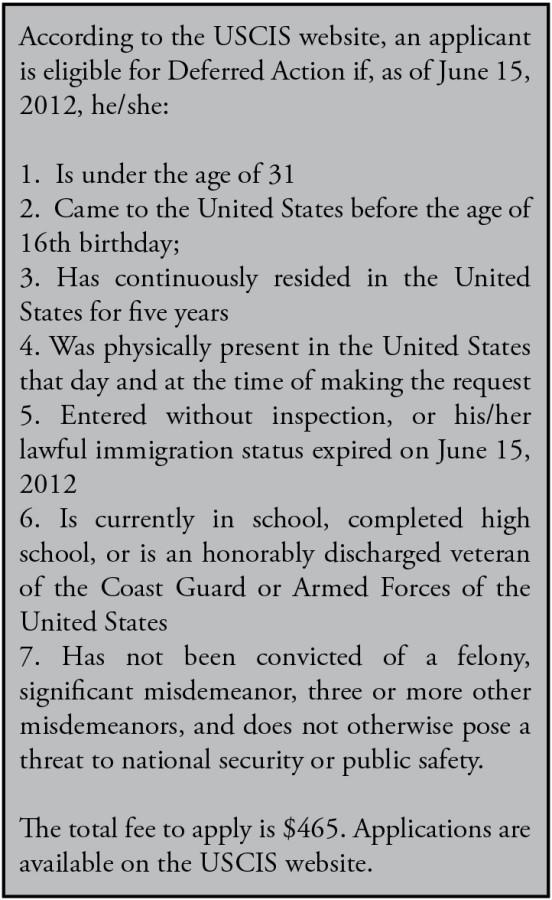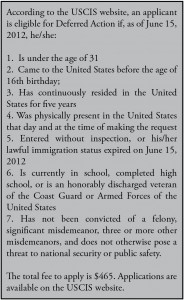Fighting the tears, Sue* must come to terms that her grandfather’s final wish to see her before he dies will never be granted. She is unable to attend her grandfather’s funeral in Mexico because Sue is an illegal immigrant. She is one of 11.2 million estimated illegal immigrants in the United States as of March 2010, according to The PEW Hispanic Center. If she leaves the country, she gives up eligibility to attain legal status.
According to the U.S. Citizenship and Immigration Service website, as of Sept. 13, 2012, over 82,000 immigrants have submitted applications for Deferred Action, an act that Sue hopes will remain, since it allows approved immigrants to legally remain in the country.
“Before they passed the Deferred Act, my sister and I didn’t know what was going to happen with us,” she said. “I’m really scared because if [Romney] does win and he completely repeals the act, then we might get deported.”
Hispanic and Latino voting issues, like the Deferred Act and deportation, have become increasingly important to the election. Sue worries about how the outcome of the election will affect her future.
“It’s just a constant tension,” Sue said. “It’s something we’ve dealt with pretty much my whole life, [but] now that new things are coming up I’ve been having to pay more attention to it.”
Sue balances her plan to graduate early with a job she found at a small family-owned restaurant, even though business is slow and she is paid minimum wage. According to Sue, the stress in her life might be the cause of her recent chest pains. Because she does not have medical insurance, her family cannot afford to send her to a professional.
“Supposedly [my heart] is perfectly healthy,” Sue said. “Honestly, sometimes it really worries me. People’s chests don’t hurt for no reason.”
This year, Sue gave up hobbies and electives in favor of taking six core classes. Her boss gave her two months off, so she could prepare for the SAT, ACT, PSAT, and four exit level TAKS tests she takes this month.
“But even though I’m not working, I still go to bed at 12 a.m. and wake up at 3 a.m. to do homework,” she said. “If for some reason I fail one of my classes, all of my hard work [and] all of my restless nights will not be worth it.”
Sue’s main motive for finishing high school early is to accompany her sister in case her sister decides to go to college in Mexico, due to illegal immigrant’s limitations in the U.S., such as difficulty finding financial aid. If Sue cannot finish, she is worried that her mother and younger brother will go to Mexico with her sister. Sue’s father would stay with her in the U.S., but he works many hours. Even though Sue and her family are able to communicate across countries with technology, Sue knows it is not the same as actually having them with her.
“I don’t want to be by myself,” she said. “I grew up coming home to my mom. I know that [my family is] always there. I don’t want to go home to an empty house with memories of what used to be. Coming home and knowing there’s nobody there for me [is] like they’re dead.”



